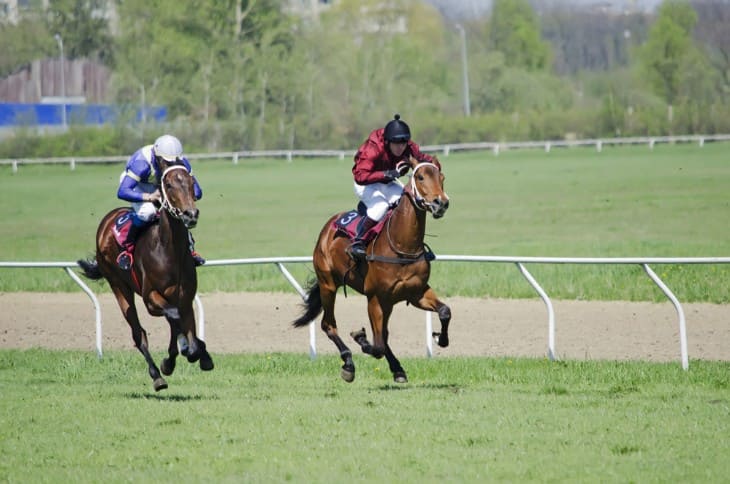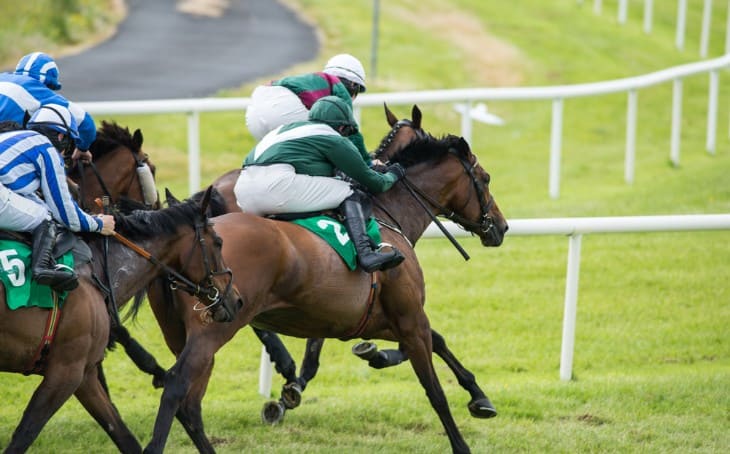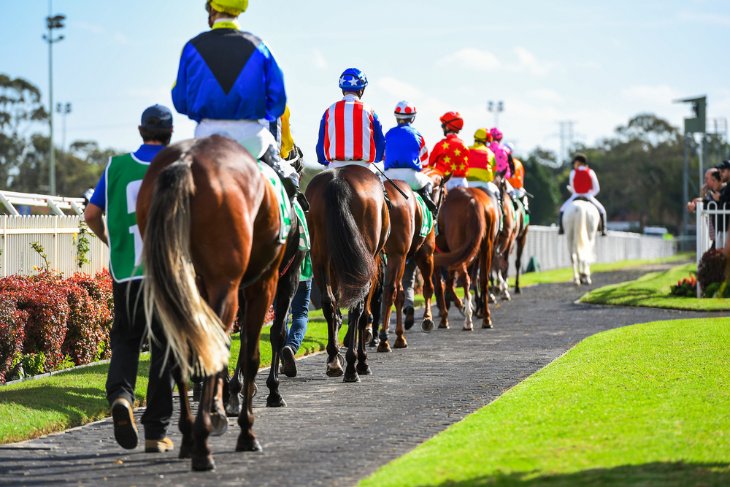- A Historical Perspective: Origins of Racecourse Clerks
- The Essential Duties: Recording and Managing Race Information
- Behind the Scenes: Pre-Race Preparations and Administrative Tasks
- Weathering the Storm: Racecourse Clerks and Changing Weather Conditions
- Communication Hub: Collaborating with Race Officials, Trainers, and Jockeys
- Technological Integration: Modern Tools for Efficient Race Management
- Adapting to Diversity: Inclusivity and the Evolving Landscape of UK Horse Racing
- Challenges and Solutions: Navigating Obstacles in Racecourse Operations
- Conclusion: The Crucial Role of Racecourse Clerks in the Thriving UK Horse Racing Industry
While horse races occur, there's a group of people working diligently behind the scenes to ensure that every aspect of the race goes off without a hitch. These are the racecourse clerks, the dedicated individuals who play a pivotal role in the smooth operation of horse racing events across the UK. From recording crucial race information to managing administrative tasks, racecourse clerks are the glue that holds the intricate web of horse racing together.
A Historical Perspective: Origins of Racecourse Clerks
To understand the significance of racecourse clerks in today's horse racing landscape, we must delve into history. The origins of racecourse clerks can be traced back to the early days of horse racing, where meticulous record-keeping and communication were vital for the success of each race. These early clerks were responsible for capturing essential details such as horse pedigrees, jockey assignments, and race outcomes, often with pen and paper in hand.
As horse racing evolved over the years, so did the role of racecourse clerks. From simple note-taking, their responsibilities expanded to include liaising with trainers, jockeys, race officials, and even the weather forecasters to ensure that every factor influencing a race was meticulously considered. The clerks became an indispensable part of the racing ecosystem, ensuring that every horse, jockey, and race condition was accounted for.
The Essential Duties: Recording and Managing Race Information
At the heart of the racecourse clerk's responsibilities lies the critical task of recording and managing race information. Before the digital age, clerks would meticulously jot down details about each horse, such as its name, age, breeding lineage, and owner. These handwritten records served as the foundation upon which the race day would unfold.
In today's tech-savvy world, racecourse clerks have embraced modern tools and software to streamline their duties. From digital databases to sophisticated race management software, clerks now have powerful tools at their disposal to maintain accurate records of every horse, jockey, and race outcome. These records are not only essential for the present race but also contribute to the historical archive of the sport.
Behind the Scenes: Pre-Race Preparations and Administrative Tasks
As the sun rises on race day, the racecourse clerks are already hard at work, ensuring that every detail is meticulously attended to. Pre-race preparations are a crucial aspect of their role, and they leave no stone unturned. From coordinating with race officials to setting up the racecourse for the day's events, these unsung heroes are the architects of the racing spectacle.
One of their key tasks is to oversee the allocation of jockeys to their respective mounts. This involves confirming that the jockeys are correctly matched with the horses they are riding, taking into consideration weight requirements, past performances, and trainer preferences. This intricate puzzle is vital for maintaining the integrity of the races and ensuring fair competition.
Administrative tasks also fall within the purview of racecourse clerks. From managing the distribution of race numbers and silks to liaising with veterinarians for pre-race checks, their role encompasses a myriad of responsibilities that contribute to the seamless running of the event. They work closely with the stewards and officials to ensure that all regulations are adhered to, maintaining a level playing field for all participants.

Weathering the Storm: Racecourse Clerks and Changing Weather Conditions
In the unpredictable realm of outdoor events, weather is a wildcard that can significantly impact the outcome of a race. This is where the racecourse clerks once again prove their mettle. Monitoring weather forecasts and keeping a keen eye on the sky, they play a crucial role in determining whether races can proceed safely and fairly.
Rain, wind, and adverse conditions can turn a well-planned race day into a logistical challenge. Racecourse clerks collaborate closely with meteorologists to make informed decisions about track conditions and safety concerns. Whether it's adjusting the starting positions to ensure a fair race or postponing events due to hazardous weather, their decisions reflect their dedication to the welfare of the horses, jockeys, and all involved.
Communication Hub: Collaborating with Race Officials, Trainers, and Jockeys
Picture the bustling scene behind the scenes of a horse racing event: trainers discussing last-minute strategies, jockeys preparing for their rides, and race officials finalizing arrangements. Amidst this organized chaos, racecourse clerks stand as the central communication hub, liaising with all parties to ensure that everyone is on the same page.
Their role as intermediaries extends to relaying essential information to jockeys about race conditions, track updates, and any late-breaking developments. Clear and effective communication is crucial to the safety and fairness of the races. Additionally, racecourse clerks provide trainers with vital race information, helping them make informed decisions about their horses' participation based on current conditions.
Collaborating with race officials is also a vital aspect of their role. From relaying changes in race orders to providing real-time updates on track conditions, their seamless coordination with stewards, judges, and other officials ensures that the event adheres to regulations and maintains a high standard of professionalism.
Technological Integration: Modern Tools for Efficient Race Management
While the history of racecourse clerks is steeped in tradition, their embrace of technology has ushered in a new era of efficiency and accuracy. Modern racecourse clerks harness digital tools and software to streamline their workflow, from managing race entries to disseminating race results in real-time.
Sophisticated race management software allows clerks to input and access data rapidly, facilitating smoother pre-race preparations and enhancing the accuracy of records. Digital platforms also provide trainers, jockeys, and owners with easy access to important race information, reducing the need for physical paperwork and facilitating smoother communication.
Moreover, racecourse clerks play a pivotal role in the integration of technology during races themselves. Electronic race timing, starting gate mechanisms, and video replay systems all require expert oversight, and clerks are at the forefront of ensuring that these technologies function flawlessly, contributing to the integrity and professionalism of the sport.
Adapting to Diversity: Inclusivity and the Evolving Landscape of UK Horse Racing
The world of UK horse racing, like any other realm, has undergone transformation and evolution. As society moves towards greater inclusivity and diversity, the role of racecourse clerks has adapted to reflect these changes. In the past, horse racing was often viewed as an exclusive domain, but racecourse clerks are now part of a collective effort to make the sport more accessible and representative of the broader population.
This adaptation involves ensuring that the needs and preferences of jockeys, trainers, and owners from various backgrounds are respected and catered to. This may encompass accommodating religious practices, dietary requirements, and cultural considerations. The role of racecourse clerks extends beyond technical tasks; it embraces a broader understanding of the participants' identities and creates an environment that fosters inclusivity.
Furthermore, the efforts of racecourse clerks are instrumental in promoting the sport to a wider audience. By embracing diversity and inclusivity, they contribute to dispelling the notion that horse racing is reserved for a particular segment of society. As the role continues to evolve, it is becoming increasingly clear that racecourse clerks are vital ambassadors in shaping the future of the sport.
Challenges and Solutions: Navigating Obstacles in Racecourse Operations
The world of horse racing is not without its challenges, and racecourse clerks are often at the forefront of finding solutions to these obstacles. From logistical hurdles to unforeseen setbacks, their ability to adapt and improvise is crucial in maintaining the integrity and smooth running of race events.
One notable challenge is managing the intricate logistics of a race day. Coordinating the arrival and departure of horses, jockeys, trainers, and officials requires meticulous planning and execution. Unforeseen delays, such as transport issues or unexpected weather changes, can disrupt the schedule, and racecourse clerks are adept at reorganizing proceedings to minimize disruptions.
Additionally, adhering to strict regulations and ensuring fair competition can be a delicate balancing act. In the face of controversies, disputes, or even potential rule violations, racecourse clerks work closely with stewards and officials to resolve issues impartially and maintain the credibility of the sport.
The culmination of their efforts can be witnessed in the seamless execution of each race event. From the moment the gates open to the roar of the crowd, to the triumphant crossing of the finish line, racecourse clerks contribute to every aspect of the experience, underscoring their indispensable role in UK horse racing.

Conclusion: The Crucial Role of Racecourse Clerks in the Thriving UK Horse Racing Industry
As we draw the curtains on our exploration of the role of racecourse clerks in the UK horse racing industry, one thing becomes abundantly clear: these individuals are the unsung heroes whose contributions are the backbone of every race event. From the historic origins of meticulously handwritten records to the modern era of digital efficiency and inclusivity, racecourse clerks have seamlessly adapted to the changing landscape while preserving the core values of the sport.
Their role goes beyond mere administrative tasks; they are the communicators, collaborators, and problem-solvers who ensure that every race day unfolds smoothly. They weather storms, both literal and metaphorical, adapting to challenges with a level head and an eye for detail. Their dedication to maintaining fair competition and the welfare of all involved parties is a testament to their professionalism and integrity.
In an age where technology reigns, racecourse clerks stand as a bridge between tradition and innovation. Their expert oversight of modern tools, combined with their understanding of the sport's historical significance, makes them custodians of horse racing's legacy.
As the world continues to evolve, so too will the role of racecourse clerks. They will continue to embrace diversity, inclusivity, and technological advancements, further enhancing their contribution to the dynamic world of UK horse racing.








